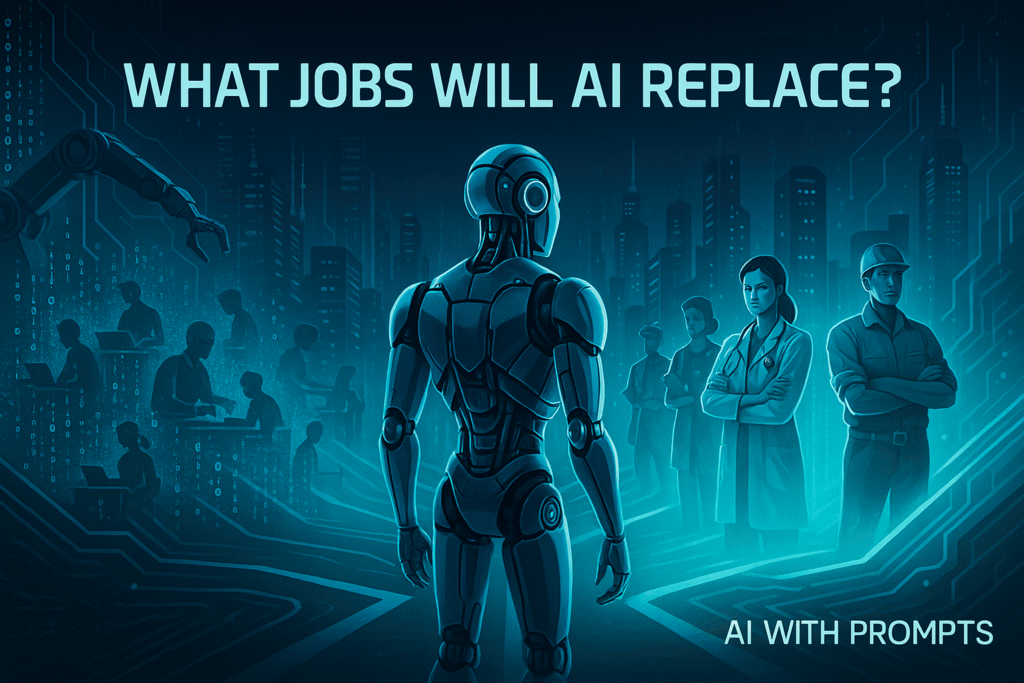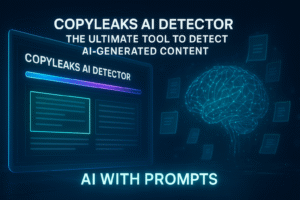
Today, in the digital AI world, many people think about What Jobs Will AI Replace soon. From customer service to data entry, AI is changing every aspect of life. In this article, we learn about which jobs artificial intelligence impacts and what you can do to stay ahead.
What Jobs Will AI Replace in the Future?
Artificial Intelligence is transforming industries from nationwide to worldwide. As AI becomes more advanced and the latest technology, many are asking, What types of jobs are most likely to be impacted by AI? What Jobs Will AI Replace
Why Is AI Replace the Jobs?
AI systems are built to analyze data, make decisions, and give better results, often faster than human knowledge. The main impact of AI on business is more efficiency and attractiveness and more options.
Key reasons include:
- Automation of repetitive tasks
- 24 Hours availability
- Many human errors
- Lower long-term technical costs
Top Jobs AI Will Likely Replace.
1. Data Entry Clerks
- Rule Based
- Risk of automation and having technical problems.
2. Telemarketers
- AI-powered bots are replacing the customer Service
- AI can handle scripts and responses with the latest technology.
- Decline of industry and automation
3. Cashiers
- Self-checkout systems and AI are rising fast, and AI can make it transparent.
- Especially common in supermarkets and restaurants
- Automation can be underway and easily make better results
4. Customer Service Representatives
- Chatbots and virtual assistants can handle thousands of queries in a second.
- AI understands and responds on time, and makes reports.
- Partial replacement and make it for the organization and department.
5. Proofreaders and Translators
- Tools like Grammarly and Google Translate are smarter and make it easy for all users.
- AI can detect grammar, context, and results.
- Limited growing automation
6. Factory Workers
- Robotics handles dangerous and manufacturing work in a factory
- AI change supply chains and quality control
- Highly changing sector.
Jobs at Lower Risk AI
Healthcare management
Creative roles for writers, designers
Skilled trades, electricians:, plumbers and mechanics
Leadership and strategy developers
Education and training professionals
Quick Summary:
| Likely High replaced | Less Replaced |
|---|---|
| Data Entry Clerks | Teachers and professors |
| Telemarketers | Creative Professional |
| Cashiers | Healthcare Worker |
| Customer Service Agents | Skilled Trades |
| Proofreaders and Basic Translators | Strategic Managers and Leaders |
Final Thoughts
AI is making technology, and it’s growing rapidly. Instead which jobs AI will replace, focus on how you can adapt, and fight with AI, learn, and grow in this new technology. The future belongs to those who have skills and are technology savers. What Jobs Will AI Replace
Call To Auction
For more information about AI-related news and the latest updates. AI WITH PROMPTS aiwithprompts.com What Jobs Will AI Replace
FAQ’s
What Jobs Will AI Replace in the Future?
Artificial Intelligence is transforming industries from nationwide to worldwide. As AI becomes more advanced and the latest technology, many are asking, What types of jobs are most likely to be impacted by AI?
1. Data Entry Clerks
2. Telemarketers
3. Cashiers
4. Customer Service Representatives
5. Proofreaders and Translators
6. Factory Workers
Why Is AI Replace the Jobs?
AI systems are built to analyze data, make decisions, and give better results, often faster than human knowledge. The main impact of AI on business is more efficiency and attractiveness and more options.
Key reasons include:
Automation of repetitive tasks
24 Hours availability
Many human errors
Lower long-term technical costs
Which Jobs are at Lower Risk from AI?
Healthcare management
Creative roles for writers, designers
Skilled trades, electricians, plumbers, and mechanics
Leadership and strategy developers
Education and training professionals
What jobs will AI replace in the next 5 to 10 years?
1. Data Entry Clerks
2. Telemarketers
3. Cashiers
4. Customer Service Representatives
5. Proofreaders and Translators
6. Factory Workers






